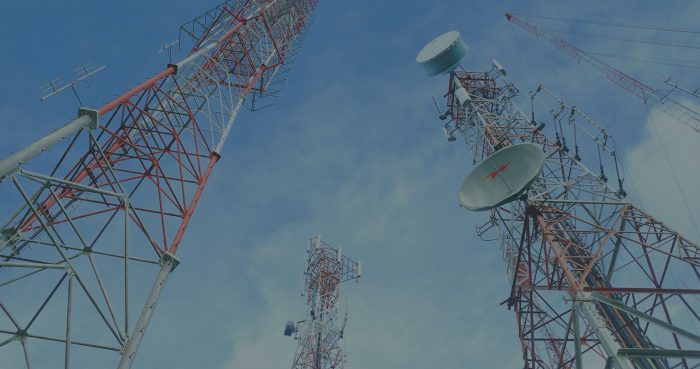
Radio repeaters are a critical component in the world of communication, especially for those who rely on two-way radios. Whether you’re coordinating a large-scale construction project, ensuring seamless communication for emergency services, or managing logistics in a sprawling urban environment, radio repeaters make a significant difference in how you can communicate with your teams.
Explore what a radio repeater is, how it functions, its various applications, and why it is essential for efficient communication.
Radio Repeaters
To understand the question, “what is a radio repeater?”, we need to grasp the basics of radio communication. Two-way radios operate on specific frequencies, allowing users to communicate over short and long distances. However, there are limitations to the range and quality of these communications, especially in challenging terrains or urban environments.
A radio repeater is an electronic device that receives a signal on one frequency and simultaneously retransmits it on another frequency. This process effectively extends the range of the original signal, allowing for communication over greater distances and through obstacles that would otherwise hinder direct transmission. The primary purpose of a radio repeater is to enhance communication reliability and coverage.
Key Components of a Radio Repeater System
A standard radio repeater system consists of the following components:
Receiver: Captures the incoming radio signal.
Transmitter: Rebroadcasts the received signal on a different frequency.
Controller: Manages the operation of the receiver and transmitter, ensuring smooth and synchronized communication.
Antenna: Both receiving and transmitting antennas are crucial for capturing and broadcasting the signals effectively.
How Radio Repeaters Enhance Two-Way Radios
When considering the question, “how does a radio repeater make a difference for two-way radios?”, it’s essential to look at its impact on communication range, clarity, and reliability.
Extended Communication Range:
Radio repeaters significantly extend the communication range of two-way radios. In places like Western Canada, particularly in vast and remote areas of Alberta, the need for extended communication is paramount. Whether it’s for coordinating emergency response teams or rural businesses, radio repeaters bridge the gap that direct radio-to-radio communication cannot.
Improved Signal Clarity:
In urban environments, like Edmonton or Calgary, buildings, and other obstacles degrade radio signals. A two-way radio repeater setup can mitigate these issues by rebroadcasting clear signals that cut through physical barriers. This ensures users receive crisp and uninterrupted communication, which is vital for operational efficiency and safety.
Setting Up a Two-Way Radio Repeater System
A successful two-way radio repeater setup requires careful planning and execution. It involves selecting the right equipment, finding optimal locations, and ensuring regulatory compliance.
Choosing the Right Equipment:
Selecting high-quality equipment is the first step in setting up a reliable radio repeater system. This includes choosing robust repeaters, antennas, and controllers that match the specific needs of your communication system.
Optimal Placement of Antennas:
The placement of the two-way radio repeater antenna is critical for maximizing coverage. Typically, antennas are mounted on high structures like towers or rooftops to ensure unobstructed signal transmission. Strategic placement significantly enhances communication efficiency across urban and rural settings.
Regulatory Compliance:
Operating a radio repeater involves adhering to specific radio repeater frequencies allocated by a regulatory body — Industry Canada. It’s essential to ensure your system complies with regulations to avoid interference and legal issues.
Applications of Radio Repeaters
Understanding “what is a radio repeater used for” requires exploring its diverse applications across different sectors.
Emergency Services:
Emergency responders rely heavily on reliable communication. Radio repeaters play a crucial role in ensuring seamless communication between dispatch centers and field units, enhancing coordination during critical situations. In regions with challenging terrains like Western Canada, radio repeaters are indispensable for maintaining effective communication.
Commercial and Industrial Use:
Industries such as construction, oil and gas, and transportation in Alberta benefit greatly from radio repeater systems. They facilitate communication across large sites, improving operational efficiency and safety. Radio repeaters help manage logistics, coordinate teams, and maintain constant communication in real time.
Public Safety and Community Services:
Public safety agencies, including police and fire departments, use radio repeaters to maintain communication during emergencies. Community services also use them for organizing events, managing large crowds, and ensuring public safety. The versatility and reliability of radio repeaters make them essential for both everyday operations and emergency situations.
Contact Tridon Communications Today
In summary, understanding radio repeaters and their importance in enhancing two-way radio communication is crucial for anyone relying on efficient and reliable communication systems. From extending communication ranges to improving signal clarity and supporting critical operations, radio repeaters are a cornerstone of modern communication infrastructure.
If you need expert assistance with your two-way radio repeater setup or any communication solutions, don’t hesitate to contact Tridon Communications. Our team of professionals is ready to help you design, implement, and maintain a robust communication system tailored to your needs.



